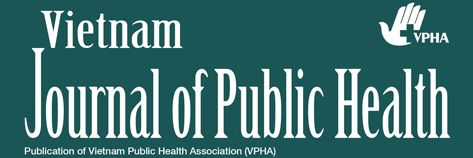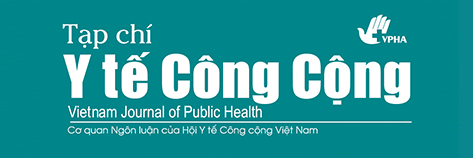Những thiếu hụt trong kiến thức về bệnh sốt xuất huyết của người dân cộng đồng đảo Trí Nguyên, Nha Trang, Khánh Hòa (Deficient knowledge of dengue fever in the Tri Nguyen island community, Nha Trang city, Khanh Hoa province)
Tóm tắt
Sốt xuất huyết dengue (SXHDD) hiện nay vẫn được Tổ chức Y tế thế giới xếp vào là một trong những bệnh cần được quan tâm trong thời gian tới với ước tính có tới gần 40% dân số thế giới có nguy cơ mắc bệnh. Nằm trong khu vực nhiệt đới, SXHDD ở Việt Nam được xếp vào nhóm một trong 10 bệnh truyền nhiễm có nguy cơ tử vong cao nhất. Nghiên cứu này được tiến hành trong năm 2009 - 2010 cộng đồng dân cư đảo Trí Nguyên nhằm đánh giá những thiếu hụt trong kiến thức về bệnh SXHDD và phương pháp phòng bệnh của cộng đồng địa phương. Nghiên cứu sử dụng kết hợp giữa phương pháp nghiên cứu định lượng và nghiên cứu định. Số liệu điều tra định lượng và kết quả phỏng vấn sâu góp phần mô tả cụ thể hơn về thực trạng hiểu biết, thực hành phòng chống SXHDD và những thiếu hụt trong kiến thức của người dân địa phương về bệnh SXHD. Nghiên cứu cho thấy tỉ lệ người dân thường xuyên được tiếp cận với thông tin về bệnh SXHD không cao và họ chủ yếu tiếp cận qua phương tiện truyền thông đại chúng. Bước đầu họ có nắm được những kiến thức cơ bản về bệnh như bệnh có liên quan đến muỗi truyền bệnh - muỗi vằn. Tuy nhiên cộng đồng chưa thực sự nắm được đầy đủ kiến thức về đường truyền bệnh. Bên cạnh đó, kiến thức về phòng bệnh SXHD của cộng đồng cũng khá sơ sài, không phải tất cả mọi người đều áp dụng các phương pháp phòng bệnh đơn giản như: nằm màn, thau rửa dụng cụ chứa nước hay thu dọn dụng cụ phế thải quanh nhà. Trong khi chưa có vắc xin hay thuốc đặc hiệu thì hiệu quả của việc phòng chống SXHD chủ yếu vẫn dựa vào kiến thức và sự hiểu biết của cộng đồng. Việc đánh giá thực trạng những thiếu hụt trong kiến thức phòng chống SXHD của cộng đồng huyện đảo Trí Nguyên góp phần đưa ra những gợi ý về giải pháp nhằm thay đổi công tác truyền thông cộng đồng một cách hiệu quả và thiết thực hơn đối với người dân địa phương nói riêng và tỉnh Khánh Hòa nói chung. Kết quả nghiên cứu trên được xem như là cơ sở khoa học để dự án xây dựng và ứng dụng các chiến lược truyền thông, tham vấn cộng đồng về bệnh SXHD một cách hiệu quả tại đảo Trí Nguyên trước khi triển khai các phương pháp phòng chống SXHD mới, có thể đem lại hiệu quả tại cộng đồng trong thời gian tới.
English abstract:
Dengue fever is considered by WHO to be a disease of concern, with 40% of the global population at risk of contracting the virus. Located in the tropical areas, dengue still presents a noticeable health problem in Vietnam and it ranks amongst the top ten communicable diseases in terms of morbidity and mortality. This research was conducted in 2010 - 2011 and it focused on evaluating the knowledge around dengue fever and current control methods within the local community. This research applied both quantitative and qualitative methods: the data from questionnaire survey combining with the evidences from in-depth interviews helped to demonstrate the deficient knowledge of dengue fever of local community. The research found that the proportion of people who frequently received information on dengue was not high, and what information they did receive was through mass media channels. The local community had very basic knowledge of the disease, such as they knew it was transmitted via a mosquito. However there was a high proportion of respondents who did not understand the dengue transmission cycle. In addition, the knowledge of dengue controlling methods was limited. The survey showed that many households did not apply the normal vector borne disease control methods such as: sleeping under bed nets, cleaning water containers or managing discarded containers. When specific medicine and vaccine for cure and controlling dengue are still unavailable, the effect of dengue fever controlling is mainly depending on the knowledge and attitude of local community. The results from this research suggested some solutions in terms of effective communication strategy to improve dengue control program in Khanh Hoa province in general and at Tri Nguyen community in particular. The findings of this research have been considered to be the scientific evidences for buiding and applying the communication strategy and community engagement on dengue fever before applying any new dengue controlling methods which have been studying and could be applied at this local community in the near furture.
Từ khóa
Toàn văn:
PDF (English)##submission.citations##
Báo cáo số liệu thống kê SXHD, Viện Vệ sinh dịch tễ Trung ương, 2010
Good B (1990). Medicine, Rationality and Experience: An Anthropological Per- spective. Cambridge University Press, Cambridge.
Kay B H, and Nam V S. (2005). New strategy against Aedes aegypti in Vietnam. The Lancet 365:613#617.
Knox T B (2007). Surveillance of immature Ae. Aegypti in Vietnam (PhD Thesis). The University of Queensland.
Le N H (2008) Evaluating the sustainability of a community-based dengue control project in central Vietnam. M.S. thesis, University of Queensland, Brisbane
Manderson L (1998). Applying medical anthropology in the control of infectious disease. Tropical Medicine and International Health 12(3):1020-1027
Tien N T K, Tuan N N A, Tuan K M, and Quang L C (2001). Epidemiological analysis of deaths associated with dengue haemorrhagic fever in southern Vietnam in 1999-2000. Dengue Bull 25: 28-32.
WHO 2004.Dengue Bulletin. Vol 28.
WHO. 1997. Dengue haemorrhagic fever: diagnosis, treatment, prevention and control. World Health Organization, Geneva.



